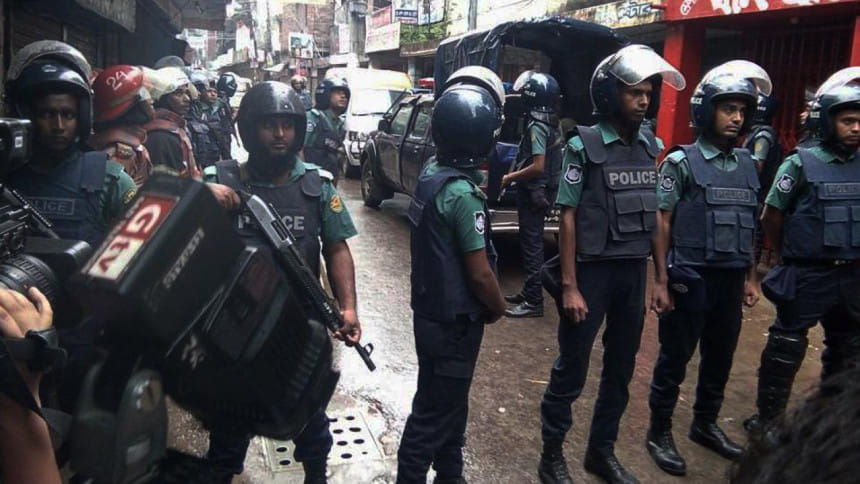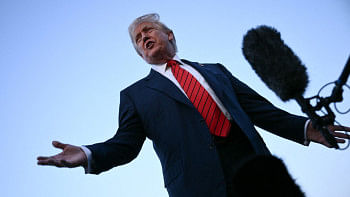Let’s start with accountability

January 8 marks the beginning of the Police Week 2018. Like previous years, there would be solemn exhortations to enforce the law impartially and protect human rights in public interest. Many citizens are, however, worried about the accountability mechanism in law enforcement, particularly when news of police excesses surfaces and people do not have the opportunity to have their views or concerns heard and taken into account by the senior officials.
During the colonial era before 1947, and also thereafter, the State has functioned as an enforcement agency and in the process alienated itself from the people. The police, as the main instrument of law enforcement, earned a bad reputation. The police tried to enforce "order" without community support, lending credence to the belief that it was the police versus the people. This is reflected in the 1861 Police Act and the people's perceptions of the police performance.
To perform their statutory functions, the police are accountable to the command structure within the police force, to the Ministry of Home Affairs, to the judicial system, and to the people at large through Parliament. The police department is under the Ministry of Home Affairs, and thus the Home Minister and the Government are answerable to the Parliament for the conduct of the police. Over the years, this institutional control has become routine, and allegedly political control has often become the bane of policing. It is in view of these developments that various committees and commissions in the sub-continent have suggested that the selection of the police chief should be depoliticised and the investigation wing of the police should be insulated from external political pressures.
It should be borne in mind that the key to the criminal justice system is the applicability of the principles of accountability to the investigative, prosecution and trial systems. The command structure of the police has built-in performance and control mechanisms, like inspection by an officer, crime review meetings at the government, district and police station levels based on indicators like charge-sheeting, conviction, clearance rates, crime data including incidence of crime, number of unsolved cases, causes of spurt in crime, etc.
According to Jack R Greene, the author of The Encyclopedia of Police Science, "The power of police in any society is derived from the communities they serve. The public invests responsibility in its police to enforce the laws and, in some rare cases, to use force against citizens. This is an extremely important set of responsibilities that police must use with caution and care. In cases where police overstep their responsibilities and engage in misconduct, they can be removed from their positions and, in the most extreme cases, prosecuted for violating the law. The major way in which citizens ensure that police are exercising their responsibilities within the parameters set by the community is through police accountability measures."
Any system of police accountability may ultimately require legislative force. Police powers and police discipline both require legislative authority. It is important to note that public confidence is gained by having some form of external investigation or review body to avoid the perception of a cover-up which arises when police are seen to be investigating themselves.
The fact is, society as a whole is concerned with very broad issues in policing. Among these concerns are standards of behaviour such as police integrity, the manner in which incidents are generally handled, including the amount of force each society finds acceptable and unacceptable in carrying out police duties. There is actually no clear defining point at which police malpractice can no longer be considered to be isolated instances. It is also difficult to lend credence to traditional police response to allegations of police corruption as "a few rotten apples in the barrel."
Public confidence increases when the police complaints system provides for an external body to supervise an investigation, or to review the evidence and conclusions drawn by the police investigation, especially when this body has both the power and the will to carry out an impartial review and order a re-investigation, if necessary. This is so because there is a very real public fear that complaints against police personnel are not be taken seriously. The need, therefore, is to ensure that the system of accountability allows society as a whole to remain in control of its police.
In Bangladesh, where criminalisation of politics is a major concern, it is very difficult to safeguard against the delinquent policemen who have necessarily to nurture a close nexus between themselves and the politicians who are in power. To do away with this undesirable situation, it is essential to devise a suitable measure to keep close watch on the performance of the police, judge their performance, and make it public whenever any wrongful performance is observed.
It is time to think of creating a department of supervision to supervise the police performance also. The task before such a unit should be to ensure that the police use force and authority with restraint and only in unavoidable circumstances. In order to prevent misuse of power, there is a need for greater accountability. While the ultimate accountability of the police is to the people, they must respect the law of the land. They are not licensed to become law-breakers themselves. We must be able to believe that the most visible symbol of the government is a helping instrument for the public instead of being a coercive arm of the State.
Muhammad Nurul Huda is a former IGP and a columnist of The Daily Star.

 For all latest news, follow The Daily Star's Google News channel.
For all latest news, follow The Daily Star's Google News channel. 





Comments